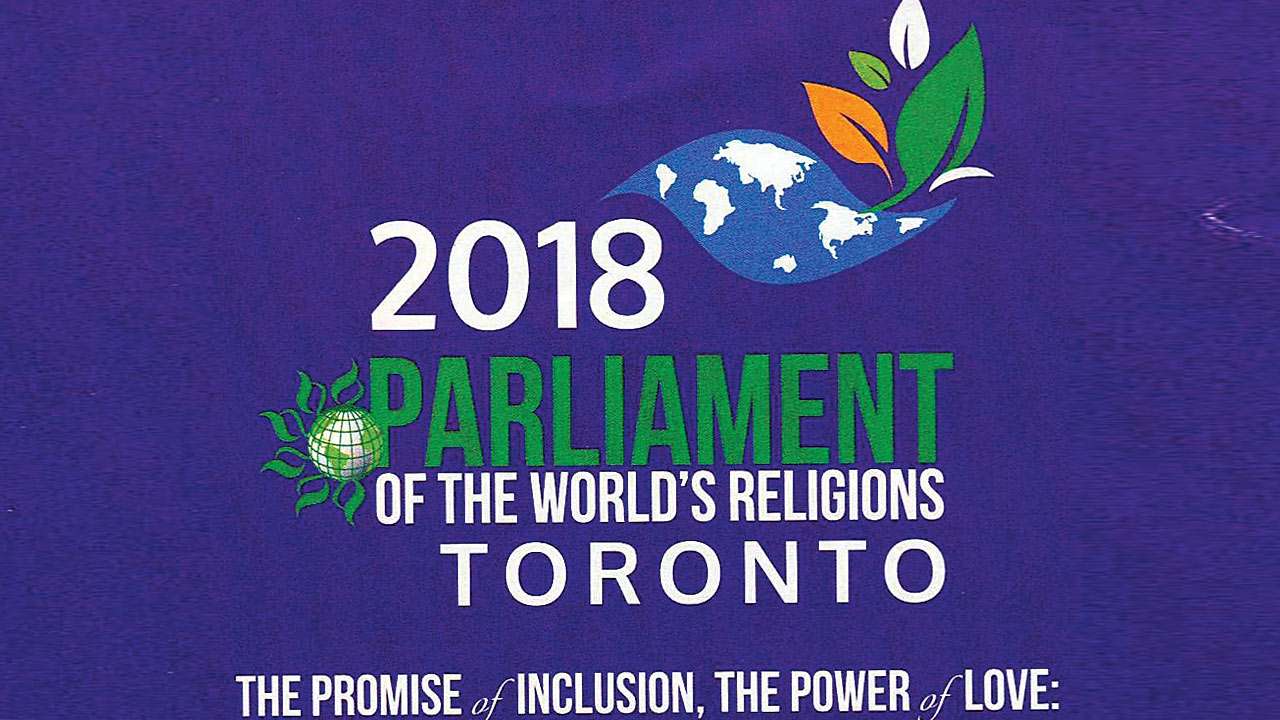
Why are many Hindus unhappy with the 2018 Parliament of World’s Religions (PoWR), held in Toronto, Canada, from November 1-7? They are angry, I believe, because Hinduism has been marginalised, even misrepresented.
This is most unfortunate because many Hindus, including myself, sacrificed their Diwali week just to register their presence at this Parliament. The PoWR is probably the largest and most prestigious inter-faith gathering in the world; if Hinduism doesn’t make its presence felt at such gatherings, our already poor image will suffer more damage. But this PoWR is especially significant because it marks the 125th anniversary of Swami Vivekananda’s historic and spectacular debut on the world stage on 9/11, 1893, in the inaugural Parliament in Chicago.
Swamiji, in his opening speech, had boldly spoken out against religious intolerance: “Sectarianism, bigotry, and its horrible descendant, fanaticism, have long possessed this beautiful earth. They have filled the earth with violence, drenched it often and often with human blood, destroyed civilisation and sent whole nations to despair.” He had called on the very first PoWR to sound “the death-knell of all fanaticism, of all persecutions with the sword or with the pen, and of all uncharitable feelings between persons wending their way to the same goal.”
Inspired by Swami Vivekananda, I had proposed a panel on “Pluralism and Peace-making in Contemporary Hinduism” at this PoWR. With Swami Tyagananda, senior monk of the Ramakrishna Mission and Hindu chaplain at Harvard and MIT, Dr. Anindita Balslev, and Mandar Apte as speakers, this panel addressed the question of how multi-religious scenarios in today’s global village may be a source of strength rather than conflict. Several other sessions also echoed such feelings, including one on “Women and Climate Change”. Canada’s leading writer and feminist, Margaret Atwood, the main speaker in this panel, said that unless faith communities pledge to save the earth, we are heading down a catastrophic precipice towards self-destruction. Evidently, the spread of fundamentalism and terrorism also bear witness to the ample abuse of religious identity. In contrast, Hindu traditions, in the depth of their non-exclusive philosophical stances and the rich diversity of their spiritual movements, try to solve the problems of religious identity by promoting pluralism and peace-making.
Considering that the main theme of PoWR 2018 Parliament was “The Promise of Inclusion and the Power of Love: Pursuing Global Understanding, Reconciliation, and Change”, one would have imagined that such Hindu ideas would receive a sympathetic and favourable hearing. But on the very first day, during the opening ceremony, Hinduism was conspicuous by its absence. Swami Tyagananda, one of the keynote speakers, was never called on to speak. It is not entirely clear why or how this slight occurred. On the other hand, there was much India-bashing by the Sikh speaker. It seems as if “neo-Khalistani” anti-India groups have acquired considerable political clout in Canada. Their presence at PoWR 2018 was thus only to be expected. But what was truly disappointing is how they were allowed to inject their agenda of hate and prejudice in a forum that was professedly dedicated to promoting love, reconciliation, and understanding.
There were also several panels full of Leftists and a couple with some Dalit activists too, who spewed anti-Hindu polemics. I myself heard BJP, RSS, and PM Narendra Modi denounced several times. While a difference of opinion is welcome, especially as a prelude to dialogue, such political sledging was uncalled for in an inter-religious gathering. As an eminent local Canadian Hindu of Indian origin put it in her complaint to the organisers, “My concern is about the insertion of radical anti-Hindu fringe elements into the POWR which creates a hostile environment for Hindus. The PoWR was also blatantly anti-American, going by several speakers and panels, often forgetting that Canada shared a similar legacy of settler imperialism, colonization, and destruction of native American and first nation people. The Hindu America Foundation Executive Director, Suhag Shukla, too noted how they themselves did not feel welcome at PoWR, certainly none of them was invited as a speaker.
Swami Vivekananda had warned us about religious narrow-mindedness 125 years ago. But what was truly disappointing was that the PoWR 2018 had allowed itself to be used by such forces. Swamiji wanted each religion to “Help and not Fight,” stand for “Assimilation and not Destruction,” and work for “Harmony and Peace and not Dissension.” The PoWR 2018 may have fallen short of this yardstick, but should Hindus give up? Certainly not. They should prepare for the next PoWR well in advance. The organisers of the 2018 Parliament in the meanwhile may seriously introspect if not apologise for their mistreatment of Hinduism.
Author is Director, IIAS, Shimla Views are personal